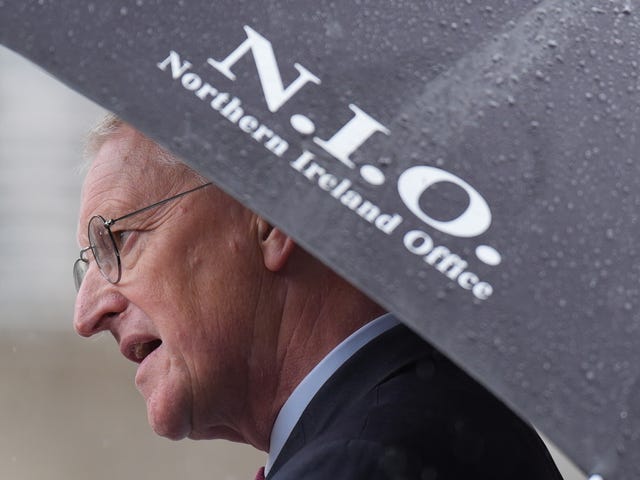The Irish Government has not committed to immediately dropping its inter-state legal case against the UK’s Legacy Act following Labour’s General Election victory, Simon Harris has said.
The Taoiseach said he wanted to work with Sir Keir Starmer over developing an approach to deal with the legacy of the Northern Ireland Troubles that was victim-centred.
Ahead of the election, the Labour Party pledged to repeal the Legacy Act introduced by the Tories.

The Irish Government has begun a legal case against the UK under the European Convention on Human Rights over the Act, in which investigations for unresolved Troubles deaths have moved to a new truth recovery body, the Independent Commission for Reconciliation and Information Recovery (Icrir).
The new arrangements have been controversial with victims’ groups and organisations, and are opposed by all of the main political parties in Northern Ireland.
During an appearance on Sky News’ Sunday Morning With Trevor Phillips show, Mr Harris said he did not ask Sir Keir when he would scrap the Legacy Act during a phone conversation on Friday.
He said: “I did indicate the willingness of, of my government to work with the British government and with parties in Northern Ireland in relation to legacy.
“I welcome the commitments that the incoming British government has given in relation to replacing the Legacy Act.”
Mr Harris was asked if Ireland would now drop its inter-state case against the UK.
He said: “Well, no, I think we need to take this step by step.
“We obviously have, in fairness, a British prime minister is just about in the door of Downing Street.
“In the last couple of days, new ministers have only been appointed and I’m very respectful of that reality.
“I welcome the commitment that the British government has now given in relation to legacy, and let’s see where that brings us in the time ahead.”

However, Mr Harris said he did not think Sir Keir would need to be pushed on his promise to repeal the Legacy Act.
He said: “He’s given a very clear commitment in relation to legacy.
“I’m giving a very clear indication back that we’re happy to work with the British government on legacy.
“Legacy is so important and it has to be victim-centred, it has to be human rights based, and it has to provide answers and justice for people who’ve experienced terrible atrocities.
“And we also have to listen to the parties in Northern Ireland in relation to getting this right.”

Speaking to the media in Belfast, new Northern Ireland Secretary Hilary Benn said he wanted to look at the component parts of the Legacy Act.
He said: “The Icrir, it is now in existence, it has recruited its staff, it has started its work, it is going to have to demonstrate to victims’ families that it can provide what those who still feel they haven’t got an answer about what happened to their loved one with what they are looking for.
“I will want to look at the governance arrangements surrounding the commission because of the way in which the Legacy Act came into being.”
He added: “There is a lot of opposition, there is not a single political party in Northern Ireland which supports the Legacy Act.
“I am committed to work with all of the parties, and indeed the Irish Government, in view of the inter-state case, to try and find a way forward which will command more support.”




Comments: Our rules
We want our comments to be a lively and valuable part of our community - a place where readers can debate and engage with the most important local issues. The ability to comment on our stories is a privilege, not a right, however, and that privilege may be withdrawn if it is abused or misused.
Please report any comments that break our rules.
Read the rules here